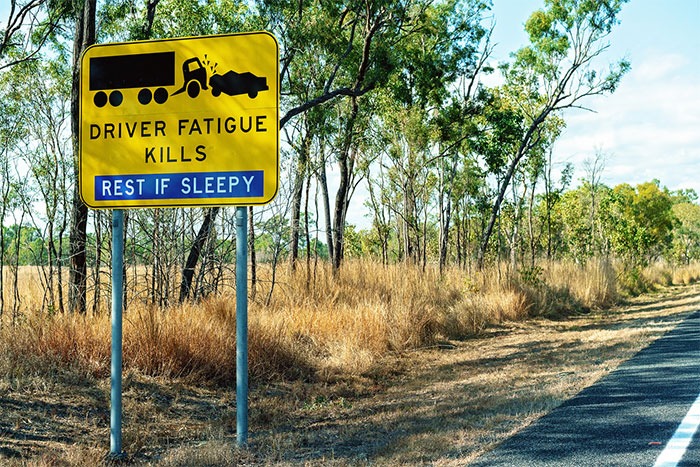
Did you know, fatigue is one of the leading causes of car accidents in Australia? By momentarily falling asleep for just four seconds while travelling at a speed of 100 km/h, your car will travel 111 metres without you being in control – and a lot can happen in that time. Driving while tired or drowsy affects your ability to drive safely even if you don’t fall asleep, and the alarming part is many of us do it on a regular basis. At Safe T Tyre, safety is our number one priority that’s why we have developed high quality tyre pressure monitoring systems (TPMS) that aim to make all vehicles safer by having properly inflated tyres. While our device can help you control your tyre pressure, unfortunately we cannot control your tiredness. However, we can educate you on the dangers of driving while sleepy. So read on to find out more.
The Facts About Drowsiness
Tiredness reduces concentration, significantly slows your reaction time, and affects your ability to make decisions.
- According to the Transport Accident Commission, 20% of all fatal road crashes in Victoria involve driver fatigue.
- The Centre for Accident Research and Road Safety in Queensland suggests that tiredness contributes to 20–30% of all deaths and severe injuries on the road.
- After being awake for 17 hours you will be impaired to the same level as someone with a blood alcohol concentration of 0.05.
- People generally don’t become fatigued from driving. Usually they are already tired when they get behind the wheel.
It is important to recognise the warning signs of fatigue and take appropriate action to ensure your safety on the road, and that of other road users.
Signs You Might Be Driving Drowsy
- Yawning or blinking frequently.
- Difficulty remembering the last few kilometres driven.
- Missing exits or traffic signs.
- Drifting from your lane, or having difficulty maintaining a consistent, correct speed.
- Slow reaction to changing traffic lights.
- Hitting a rumble strip on the side of the road.
Preventing Driver Fatigue
It’s vital to ensure you are getting enough sleep every night. Most adults need at least 7 hours of sleep a day, while teens need at least 8 hours. A few other things you can do to avoid tiredness while driving include:
- Avoid drinking alcohol before you drive or taking medications that make you sleepy. Be sure to check the label on any medications or talk to your pharmacist.
- Limit driving when you would normally be sleeping (overnight).
- Get a good night’s sleep before heading off on a long trip.
- Plan your route before you go and map out where you’ll take a break. You should aim to break at least every 2 hours.
- Don’t drive for more than eight to ten hours a day.
- If you have a sleep disorder such as sleep apnoea, talk to your doctor about treatment options.
- Take a 15-minute powernap if you feel yourself becoming drowsy.
- Share driving on longer trips where possible.
Rest When Sleepy
Fatigue is one of the top five factors contributing to road crashes in Australia. Whether you are planning a long road trip or a quick journey, it’s vital to pull over if you are experiencing any signs of fatigue. On long drives, plan to rest at least 15 minutes every 2 hours. There are an abundance of designated rest spots along all highways and freeways across the country. General and recreational vehicles can stop at a rest area for up to 20 hours unless signed otherwise, however, they are not camping sites or an accommodation option. Don’t put your life and the lives of other motorists at risk when you are tired – take a rest break, it could save your life.
Australia’s Leaders in Road Safety
Safe T Tyre is a wholesale supplier of top-quality tyre pressure monitoring systems (TPMS). We aim to ensure that you never have to drive on poorly inflated tyres without knowing it. It’s a simple but effective way to make your vehicle, and your whole driving experience, safer. Buy a TPMS online now or get in touch with our team by calling 1800 876 700.

